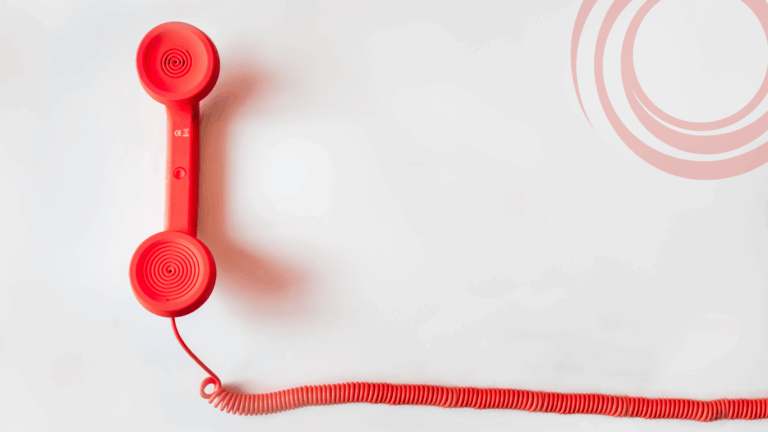
The Importance of Communication in Healthcare
In the complex world of healthcare, communication is far more than just the exchange of information — it is the backbone of effective patient care. Whether between healthcare professionals, or…

Resiliency. I remember hearing that word a lot throughout nursing school and then during my career. But what exactly is resiliency? Is it something that is inherited, or simply learned over time?
Resilience is a useful and highly adaptive trait that is described as the ability to adapt positively in the face of stress and adversity, to pull through these difficulties, and gain strength from them. Resilience is defined by psychologists as, “the ability to adapt successfully in the face of trauma, adversity, tragedy, or significant threat.” It is emotional toughness and is often thought of as a predictor of success for individuals in stressful situations. Resilience can be instinctive, but research also tells us it can be learned, a quality developed with the right practice.
Resilience is a crucial quality for not only nurses in today’s complex healthcare system, but for all healthcare workers in these trying times. It has been a key component for the continuation of healthcare services over the past several years during the COVID-19 pandemic, as providing care to others during the pandemic has obviously been stressful. Healthcare workers, in general, have always been thought of as a resilient group, but what does that really mean in today’s world full of challenges?
A survey from Mental Health America sought to quantify the effects this imposed stress has had on the healthcare industry’s workforce. The survey reported that 93% of healthcare workers were experiencing stress, 86% reported experiencing anxiety, 77% reported frustration, 76% reported exhaustion and burnout, and 75% said they were overwhelmed (Lagasse, 2020). Psychological resilience is reported to be related to symptoms of anxiety and depression in healthcare professionals, and with the ongoing challenges of the pandemic, it is crucial that healthcare leaders understand resilience and its relationship to burnout, as well as its associated broad range of effects.
 The risk of burnout is very high in today’s world of huge challenges and demands for employees. And for healthcare workers to successfully navigate these challenges and be able to effectively care for patients, support is needed. The effectiveness of leaders to plan for and support their employees can affect the organizations’ ability and capacity for patient care. And according to many medical societies, creating a plan to provide support for staff, not only during this crisis but after as well, will help maintain a healthy workforce that is able to meet community healthcare needs over time. How well staff is supported during times of stress will impact our ability to cope and recover from the crisis, or otherwise, adopt unhealthy coping mechanisms and show signs of stress such as burnout or worse.
The risk of burnout is very high in today’s world of huge challenges and demands for employees. And for healthcare workers to successfully navigate these challenges and be able to effectively care for patients, support is needed. The effectiveness of leaders to plan for and support their employees can affect the organizations’ ability and capacity for patient care. And according to many medical societies, creating a plan to provide support for staff, not only during this crisis but after as well, will help maintain a healthy workforce that is able to meet community healthcare needs over time. How well staff is supported during times of stress will impact our ability to cope and recover from the crisis, or otherwise, adopt unhealthy coping mechanisms and show signs of stress such as burnout or worse.
The ongoing provision of healthcare services depends on the mental well-being of healthcare workers. Resilient organizations need to reconfigure their well-being priorities to meet the biggest new drivers of stress during this ongoing crisis, and leaders must be able to build people up around them. This cannot be done, however, until the leaders themselves begin to understand their strengths and weaknesses, become more self-aware, and recognize their own vulnerabilities. Although this sounds like a counterintuitive thing to ask of a resilient, empowered leader, this may be the most important aspect of leadership in stressful situations, such as the COVID-19 pandemic. Resilience is not being able to do it all but knowing when to ask for help. Resilient people can support and work through issues with others and promote team-based resilience by cultivating awareness and attention to self-care behaviors.
Building resilience is an important focus for leaders in order to establish a healthy work environment and is key to maintaining a stable workforce. Prioritizing the well-being of caregivers is necessary for patient safety, quality of care, and the patient experience. Taking care of yourself is what allows you to take care of others. It is also important to communicate with your co-workers about job stresses to identify causative factors. This can help you work together to identify solutions. We are all playing a crucial role in fighting this pandemic and knowing when and how to access support is key. Undoubtedly, self-care is imperative to maintaining well-being. Some ways in which I have maintained my resilience have been through retaining a sense of control by keeping a consistent daily routine when possible, eating healthy, and keeping up with my daily exercise routine of jogging. Building and maintaining resilience is a self-care strategy that not only benefits oneself but those around you as well. So be good to you!

References
Rachel G. Baskin, Robin Bartlett. Healthcare worker resilience during the COVID-19 pandemic: An integrative review; Journal of Nursing Management. 28 June 2021 https://doi.org/10.1111/jonm.13395
TD Shanafelt , 2020. American Medical Association. https://www.ama-assn.org/system/files/2020-05/caring-for-health-care-workers-covid-19.pdf
Lagasse, J., Healthcare workers experiencing burnout, stress due to COVID-19 pandemic; Heathcare Finance; DEC 08, 2020. Accessed online March 15, 2022 at: https://www.healthcarefinancenews.com/news/healthcare-workers-experiencing-burnout-stress-due-covid-19-pandemic